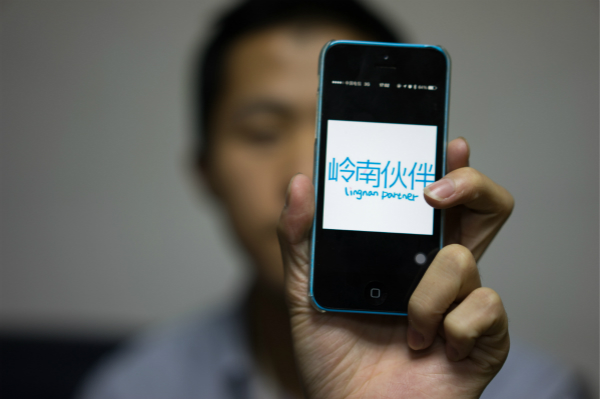
“关乎生存与尊重”——保护中国青少年远离艾滋病病毒
广州是中国受艾滋病影响严重的城市之一,其青少年学生感染者病例报告数年均增长高达46%。
作为全国艾滋病病毒防控战略的一部分,中国政府正在加强社区组织的力量,为有相关需求的人群提供帮助,预防艾滋病病毒的传播。因此,联合国儿童基金会正在与“岭南伙伴”等社区组织进行合作,以青少年友好的模式鼓励年轻人接受政府提供的检测和治疗服务。
22岁的小田(化名)在“岭南伙伴” 诊所接受过检测服务后,又接受了咨询师培训。“在对来访者进行检测之前,我会先介绍如何避免高危行为、以及如何保护自己这些信息。如果后面检测结果为阳性,我们会提供一位咨询师全程陪同,提供帮助并协助转介到医院。”
“岭南伙伴”还通过培训大学生同伴教育员,向青少年团体提供信息和帮助。在当地卫生和教育系统的大力支持下,“岭南伙伴”与学生团体开展合作,向学生传授安全性行为的知识,并在需要时介绍他们去医疗机构寻求帮助。
Guangzhou is oneof the hardest hit cities by HIV in China, and adolescents are particularly atrisk. HIV infections among students recorded an average annual growth of 46 percent.
As part of thenational HIV prevention and control strategy, the Government of China isempowering community-based organisations to help those in need and prevent HIV.That’s why UNICEF is working with community organisations like Guangzhou-basedLingnan Partner to encourage young people to access government-provided testingand treatment services, in a non-intimidating and adolescent friendly way.
XiaoTian*, 22, was trained at the Lingnan Partner clinic to become a counsellor,after using the services himself. “Before their test, I give people informationon how to avoid high-risk behaviours and how to protect themselves,” he says.“If the test is positive, we'll provide a counsellor to support them and referthem to a hospital.”
LingnanPartner is also reaching out to adolescent groups by training universitystudents to become peer-to-peer educators. With strong support from the local health and education bureaus, Lingnanis able to work with student groups to engage a large of number of young peoplelearn about safe sex, and refer teenagers to health services when needed.
* Not the realname
建立信任,服务社区儿童
尽管中国已经建立了旨在帮助困难群众的福利制度,许多生活在困境中的农村家庭却无法获得这些福利。在中国农村,许多人从未听说过社会工作(社工)这一职业。所以,从事这一工作的人员想要在村子里获得信任实属不易,在老少边穷地区更是如此。
在参加了北京师范大学中国公益研究院组织的培训后,云南省瑞丽县的儿童主任瑞应开始了在村里的工作。瑞应在为第一个服务对象服务时,就被孩子的妈妈用扫帚赶出了屋,现在她已是这家最受欢迎的常客。
2010年,联合国儿童基金会和民政部启动了基层儿童福利和保护服务体系建设工作试点。八年来,项目已经帮助越来越多儿童获得了社会福利、救助和保护服务。
2016年,国务院印发了《关于加强困境儿童保障工作的意见》,要求在所有的村(居)民委员会设立儿童福利督导员或儿童权利监察员。截至2017年底,已有12.7万村(居)民委员会设立了相应职位。
BuildingTrust, Building Communities
SDG 1 No Poverty,SDG 10 Reduced Inequalities
While China hasbuilt a welfare scheme to help its poorest citizens, many rural families inneed don't necessarily access it. In rural China, many people have never evenheard of the profession of social work. Therefore building trust, especially inremote and less developed communities, can be tough.
Ruiying,a barefoot social worker in Ruili, Yunnan Province, started her work with basictraining on social work skills provided by Beijing Normal University’s ChinaPhilanthropy Research Institute. One of Ruiying's first-ever experiences as abarefoot social worker was being driven out of a villager's home with a broom.Just a few years later Ruiying is now a regular and warmly welcomed visitor inthat same home.
Launchedby UNICEF and the Ministry of Civil Affairs in 2010, the Barefoot SocialWorkers programme has enabled more children to access social welfare,assistance and protection services.
In2016, the State Council issued its Opinion on Strengthening Protection forVulnerable Children, which stipulates the creation of positions like theBarefoot Social Workers in every community in order to contribute to the careand protection of vulnerable children. By the end of 2017, 127,000 communities had been covered.




